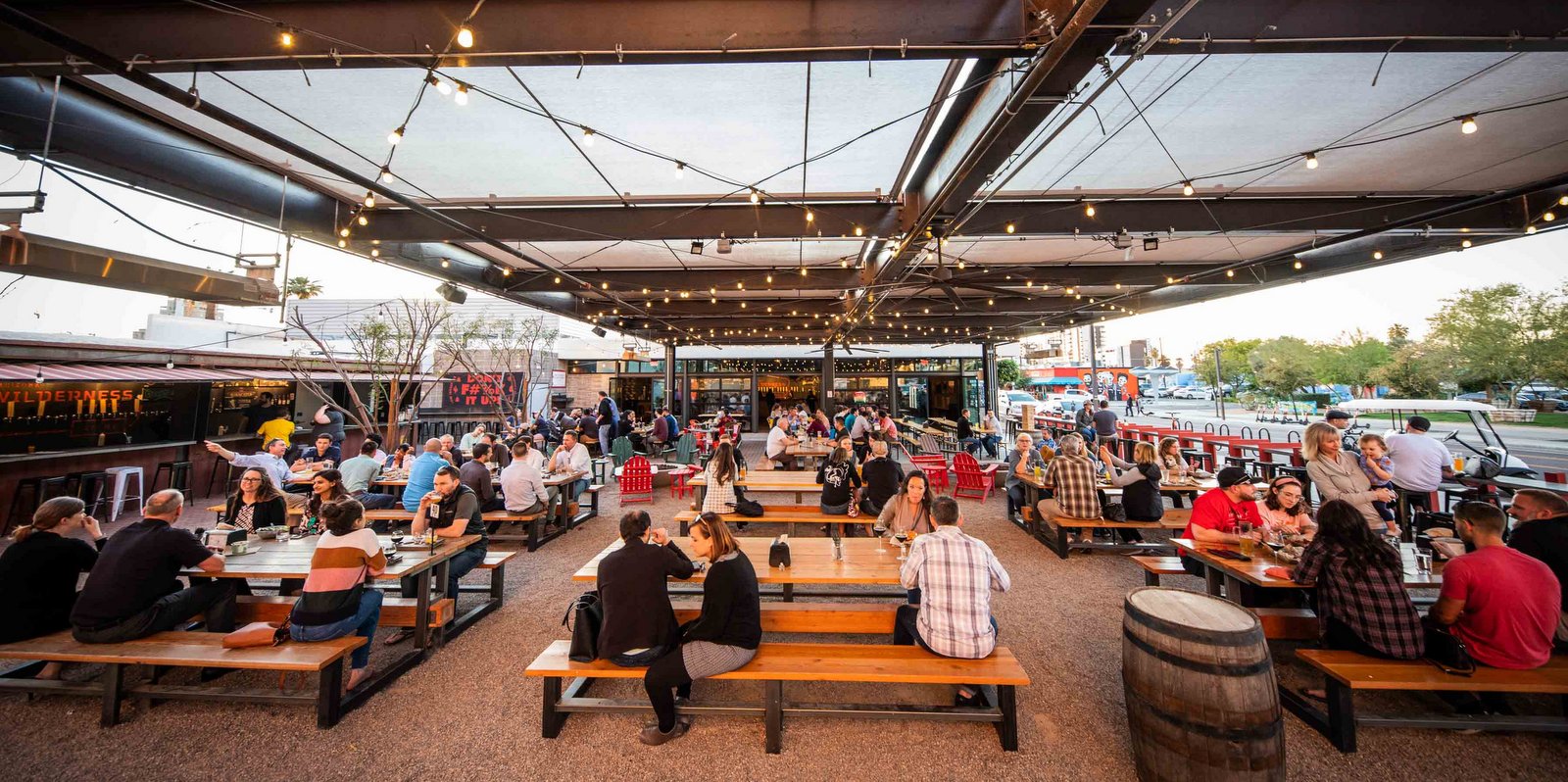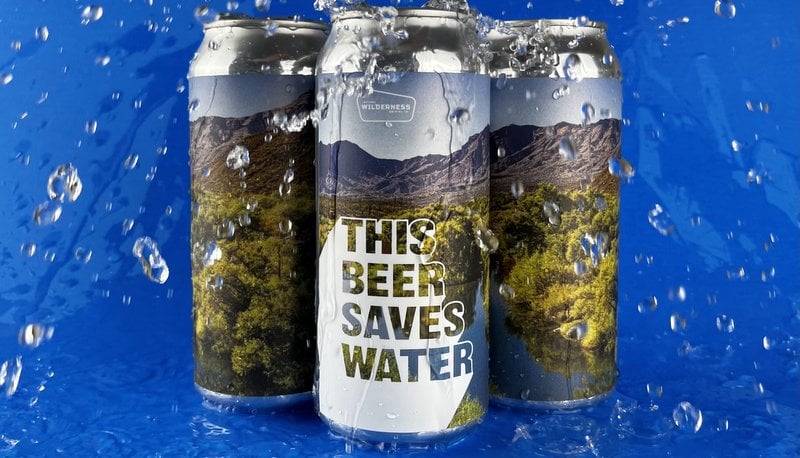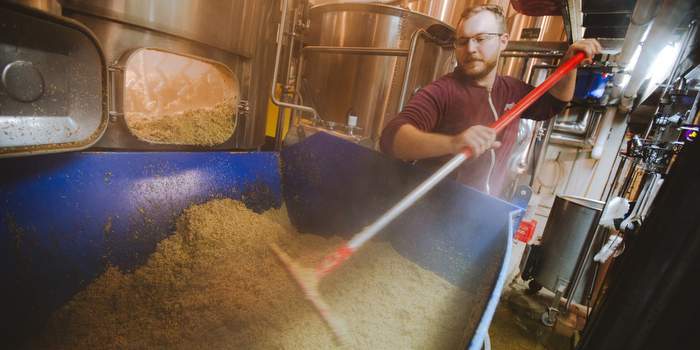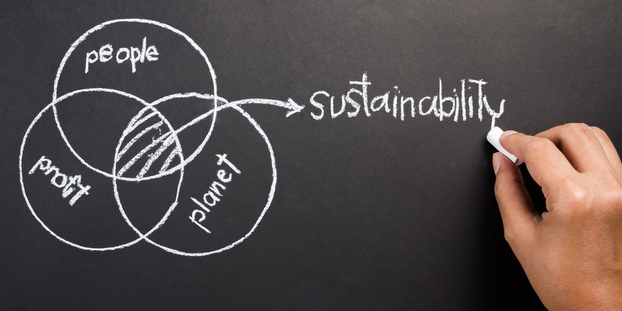CBB: What are some of the other things you are doing on the environmental side?
Utz: There are a number of things we do that provide a double benefit to the environment and the company’s bottom line, including:
Energy efficiency. We have waste heat recovery on all our boilers and steam generators, wort kettles and brewing vessels – so you don’t see the big plume of steam coming out of the brewery because we are capturing most of that heat. We worked with a German brewhouse to really focus on thermal design.
Spent grain. We are in cattle country, so after we use our grain for brewing, the residue goes to a cattle operation about 30 miles from here. All of our spent products go there. We are working on a project now to recover spent yeast as well.
Wastewater. We worked with the city to create a plan that helps them use our wastewater to help treat the overall wastewater of the city more efficiently – since our water contains a lot of sugar in it that feeds the bugs that help break down bad stuff. We are also putting in a new system that will hold the brewery’s entire discharge during the day and only send it out at night. This will greatly help the city to balance what they get during the day and expand their capacity to address wastewater.
Lighting. We take advantage of natural light, efficient light fixtures, solar panels that provide 20kw of power and utilizes a space we had identified as ideal for it.
CBB: There is also the impressive work you have done on glass recycling. Tell me about the Ripple Glass project – what was your inspiration, and what has the impact been so far?
Utz: Since I started in 1998, John has always been focused on resource efficiency. We started meeting with a local non-profit group called Bridging the Gap collecting cardboard and doing all we could do to recycle internally. However, we also recognized that glass was a thing we couldn’t find a system for – there wasn’t a good way to recycle glass at the time – there were only three places to recycle in a city of 2 million people.
In the mid-2000s, we said, something’s wrong here. Other mid-size cities have glass recycling, why can’t we have that as a city? We knew that millions of pounds of glass were going into the waste stream through our products, and we wanted to find a way to turn that around.
I got a grant from the Mid-America Regional Council (MARC) to study this problem and find a solution. At the end of that one year study, we said we believe KC could support a glass recycling system because the city has companies like Owens Corning who utilize glass for fiberglass.
After deciding there was a business model to help solve this problem, we partnered with a number of other companies and groups in the city, and, in 2009, we created a glass collection system and processing plant which together are called Ripple Glass. Some key attributes include:
- Used glass is processed to made furnace ready;
- 75% of the output from Ripple Glass goes into Owens Corning fiberglass insulation;
- 25% of the output goes to the Ardagh Group, which manufactures glass bottles among other materials and in turn, becomes glass bottles again purchased by Boulevard Brewing Co. for their beer. Three thousand tons of recycled glass are used to make 30-40% of all the glass that Boulevard consumes;
- Takes in all glass, regardless of color, and is able to use clear and green glass for insulation and brown glass for becoming glass bottles again;
- 600 lbs of CO2, a major Greenhouse Gas, is avoided by every ton we recycle;
- Last year, 32,000 tons of glass were recycled; and
- This year, the program is projected to recycle over 36 thousand tons of glass.
For Boulevard, Ripple Glass closes the loop of a key resource because our bottles become our bottles.
CBB: Is recycling glass energy efficient given the heat needed to break it down and the abundance of raw materials like sand?
Utz: The melting of virgin raw materials to make glass is where the higher energy comes from as recycled glass melts at a lower temperature. Also, every time a bottle gets recycled, it takes less energy to turn it around. It takes a lot less energy to recycle it nearby than to haul it to a landfill and bury it forever.
And keep in mind, that 75% of this material is becoming insulation that goes into a wall cavity and stays there until a house is demolished, making the building it is in more energy efficient in the process.
CBB: So, Ripple Glass is a business unto itself then?
Utz: Ideally, Ripple Glass is a for-profit venture to be sustainable in the long-run. We are at the point of it being a sustainable business to handle a waste problem.
The name Ripple Glass came from the idea of a ripple effect. We know this problem exists in many mid-size cities and other regions, so we provide recycling services to KS, MO, NE, IA, OK, AR – much like our original business sales pathway.
CBB: Does it continue to ripple across the country?
Utz: That’s a goal. And, there’s more we can do right here. The glass recycling rate in KC is still only 20%, so we still have a ways to go to maximize our market here.
(Click “Next” to continue reading the story.)





RT @CraftBrewingBiz: Boulevard Brewing talks about its zero waste company mission & more http://t.co/hyWgCN3tuP @Boulevard_Beer @kcoeisom
@CraftBrewingBiz reports: Boulevard Brewing talks about its zero waste company mission: http://t.co/dzufw7h2gi Good work @Boulevard_Beer!!!
RT @CraftBrewingBiz: Boulevard Brewing talks about its zero waste company mission & more http://t.co/hyWgCN3tuP @Boulevard_Beer @kcoeisom
RT @CraftBrewingBiz: Boulevard Brewing talks about its zero waste company mission & more http://t.co/hyWgCN3tuP @Boulevard_Beer @kcoeisom
RT @CraftBrewingBiz: Boulevard Brewing talks about its zero waste company mission & more http://t.co/hyWgCN3tuP @Boulevard_Beer @kcoeisom
RT @CraftBrewingBiz: Boulevard Brewing talks about its zero waste company mission & more http://t.co/hyWgCN3tuP @Boulevard_Beer @kcoeisom